NZ Foreign Minister Nanaia Mahuta slams door shut on AUKUS
A day after PM Chris Hipkins held the door open to joining pillar 2 of the pact, Foreign Minister Nanaia Mahuta appears to slam it shut again.
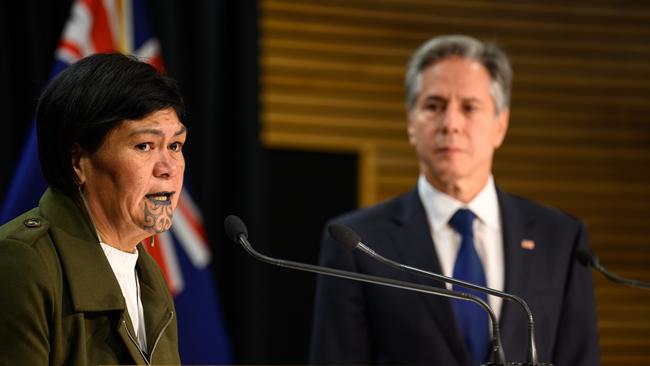
A split has appeared in New Zealand’s leadership over AUKUS, as the country’s Foreign Minister ruled out joining the pact, only a day after Prime Minister Chris Hipkinsheld the door open to negotiations.
Hours after fronting the media with US Secretary of State Antony Blinken, who said the door was “very much open” for NZ to engage with AUKUS “as a trusted partner,” Nanaia Mahuta appeared to slam that door shut.
“I’ll be really clear, we’re not contemplating joining AUKUS,” Ms Mahuta told reporters.
On a visit to NZ’s capital on Thursday, Mr Blinken said Washington wanted to use Wellington’s “complex” relationship with countries in the region, “to defend the Indo-Pacific so nations make their own decisions free from coercion,” – a pointed dig at China.
Ms Mahuta had appeared cautiously positive about NZ joining pillar 2 of the pact – the non-nuclear aspect that includes the sharing of advanced technologies - during a press conference with Mr Blinken, saying that “at an official level”, the government was exploring what participating in Aukus would look like before it was taken to cabinet.
Mr Hipkins’ strongly positive comments the previous day were seen as a significant move toward AUKUS. Just two months ago Mr Hipkins had dismissed the pillar two issue as “purely hypothetical.”
Ms Mahuta’s remarks reflect unease in Labour – which introduced its non-nuclear policy in the mid 1980s – over the pact. Many in the party believe that even joining pillar 2 would be a step too far, not just for a wary NZ public but for its valued relationship with Pacific nations and with China, NZ’s largest trading partner.
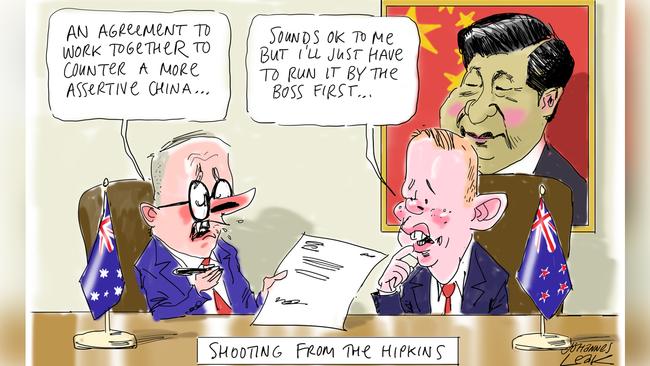
Senior politicians on both sides of the political divide, from Gerry Brownlee, former foreign minister in John Key’s National government to former Labour PM Helen Clark, have also warned against any such move.
Ms Clark, who signed NZ’s Free Trade Agreement with China in 2008, believes any association with AUKUS would damage NZ’s reputation for an independent foreign policy, while Mr Brownlee has warned against seeing China as the enemy.
While Australia weathered China’s bad tempered economic coercion and found new export markets, NZ could not survive equivalent bullying by a country that is responsible for one third of it exports.
The fear is justifiable, says Geoffrey Miller, geopolitical analyst at the Democracy Project.
“Joining AUKUS, even the non-nuclear pillar, would be a red line for China,” he told The Australian. “Beijing has tolerated a lot from NZ, even Chris Hipkins going to NATO. But NATO was focused on Russia, while AUKUS is centred on China. Signing up to it would be crossing the rubicon and NZ would have to be prepared for repercussions.”
Others question the value in signing up, pointing out that while NZ would have access to technologies, AI and sophisticated undersea capabilities, much of this would be accessible to Wellington anyway while military technologies would be of limited use to a small country with a small defence force far away from the super powers.
“We don’t need military technology in peace time and if we were going to have to fight we’d never have to go it alone,” said Benjamin Macintyre of the NZ Initiative.
”In time of war we would always be fighting alongside Australia and the US.”


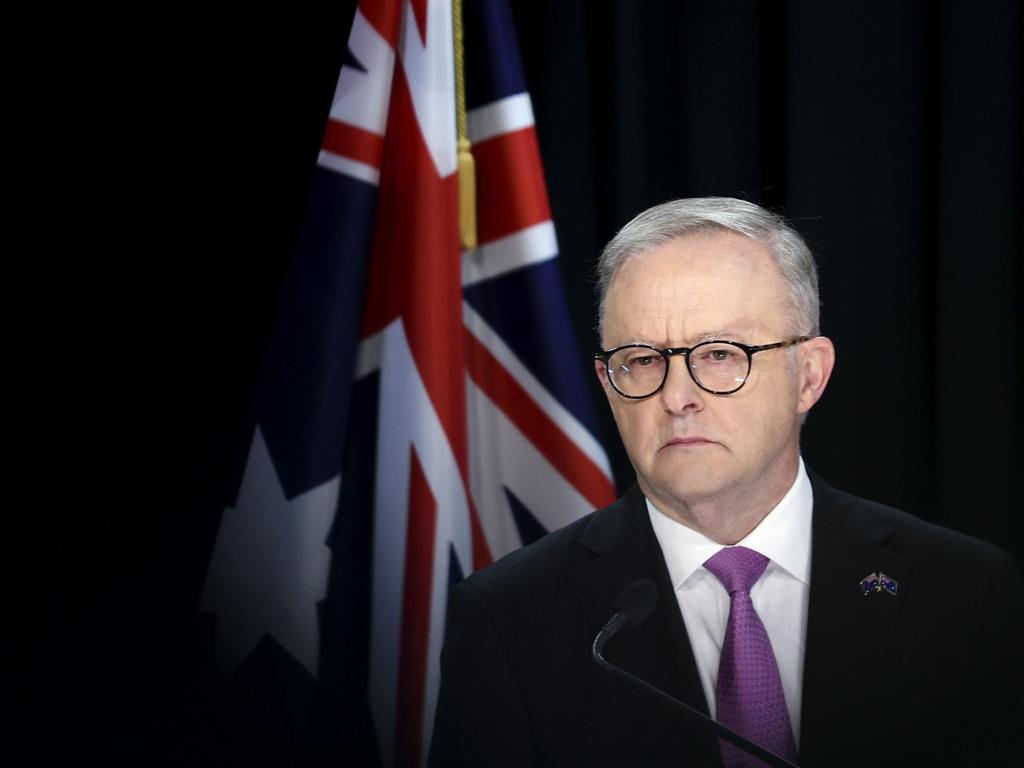

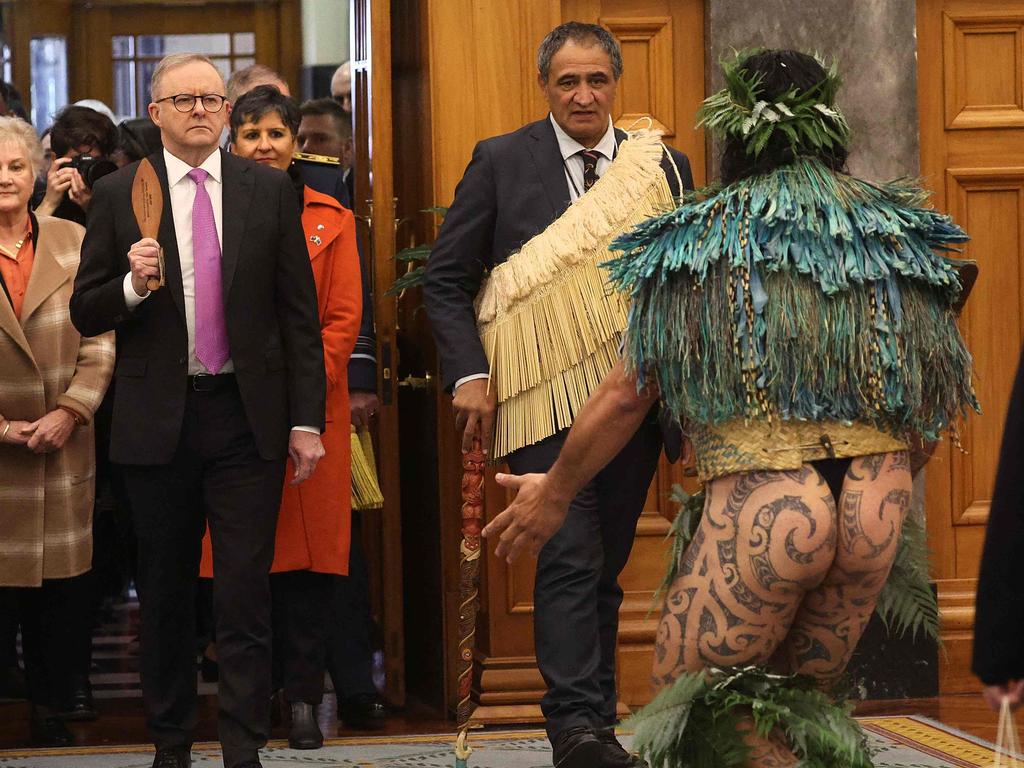
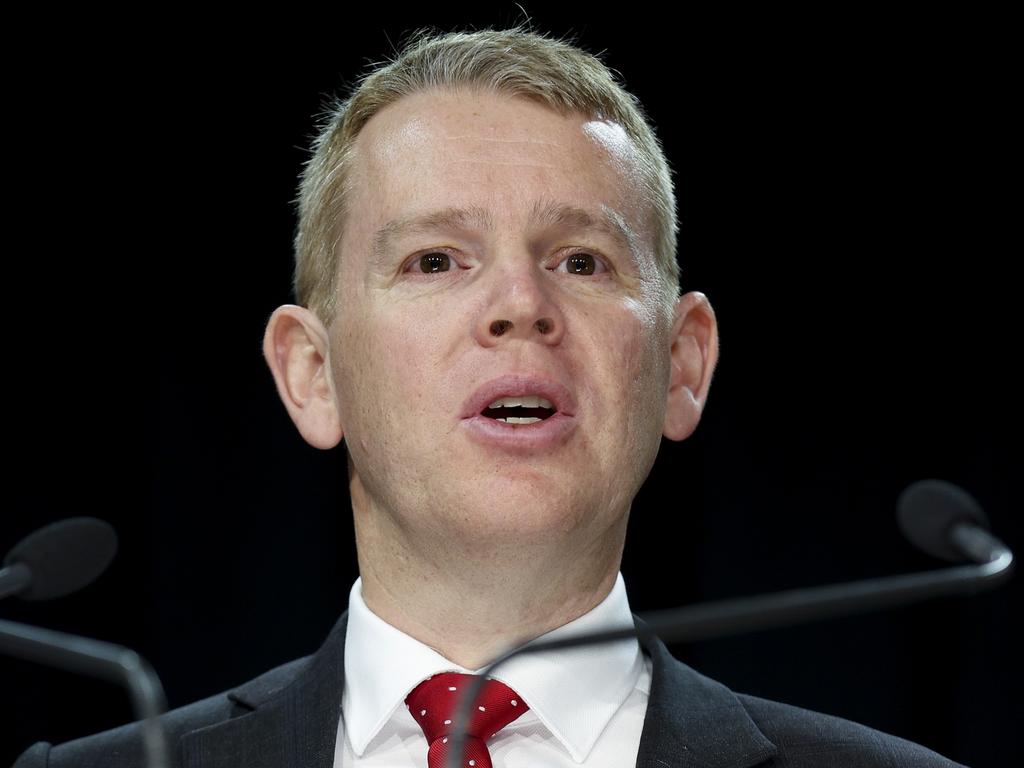


To join the conversation, please log in. Don't have an account? Register
Join the conversation, you are commenting as Logout